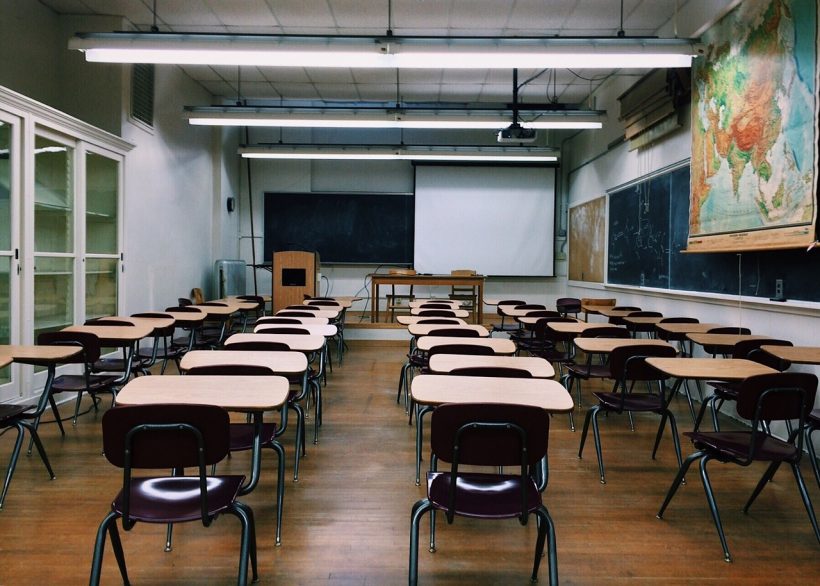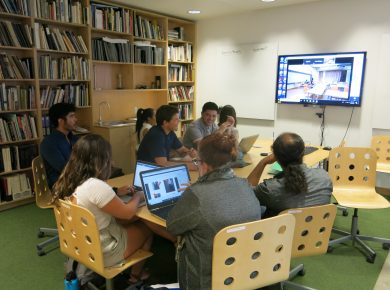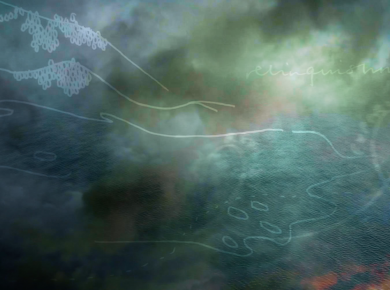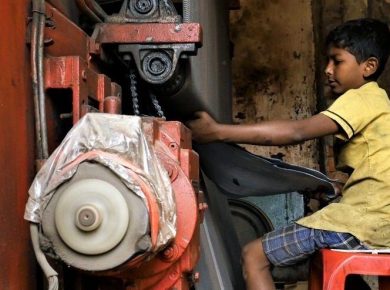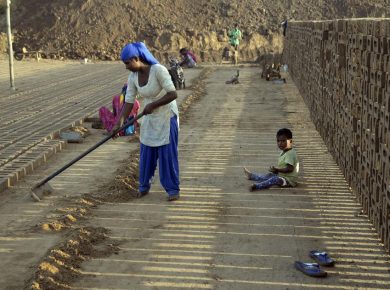This is just one picture amongst many of the Instagram diary of Melissa and Alon, currently travelling along the refugee routes of Europe in a transit van as the mobile unit of Crisis Classroom, a Brighton-based project that gives displaced people the chance to learn the skills they feel they need to cope in new worlds.
Crisis Classroom was founded in 2016 by Kate McAllister and Darren Abrahams, a teacher and trauma therapist who were driven to develop the project in response to 2015’s refugee crisis. Put aside thoughts of English GCSEs and Maths A levels, however; what Crisis Classroom offers is reflective and organic, responding directly to the immediate needs of the refugees themselves.
“It’s not traditional teaching,” admits Kate. “We ask what [the refugees] want to achieve, what they already have and what’s missing and what we can do together to fill in those gaps. It’s about fostering independence and developing skills and getting to know each other.”
Learning often begins with a shared activity, like making spice kits or cooking: “In Calais, we started by making soup together and learning basic French vocabulary so that they could find ingredients. Basic needs were met and some language was learnt,” says Kate. “From there, we started talking about one another’s countries, speaking more French.”
The group then decided they wanted somewhere comfortable to sit while they ate. “So we started to share carpentry skills – which then developed into the building of a school. They had probably had between 80 to 90 per cent of the skills needed; all we did was bring in what was missing – some French language and a few ways to build a roof.”
Within two months, the group had gone from being complete strangers to a community that had built their own school for their children.
This wasn’t the original concept of Crisis Classroom; its moment of real genesis – when intention turned into something else – occurred shortly after Kate arrived in Calais for the first time in 2015. “I thought I’d be able to leverage my network of educators and send learning resources. Then I met the people there, many of whom were 16, 17, 18-year-old boys …
“As a mother and a teacher, it hit me like a sledgehammer that no box of books was ever going to be the right box of books,” says Kate. “The ability to turn up week in, week out, and follow a course of study, it’s just not possible in a place like that, when everything is moving and in chaos. That’s when I realised I needed to look at everything in a completely different way.”
The resulting approach is a blend of Kate and Darren’s skills: Kate had worked in secondary schools for 15 years, teaching self-managed learning for students; Darren is a trauma therapist. “Between the two of us, we’ve made a hybrid of what we understand about the nervous system, and trauma how to work effectively as a community,” she says.
They call it Zero Waste Education, a system that empowers learners and educators to co-construct experiences together based on evolving need, encouraging the growth of safe spaces where the capacity for learning can grow. Bringing education to displaced people is a distinct methodology; so far, Crisis Classroom has trained up to 300 people; an online course has trained a further 7,000.
